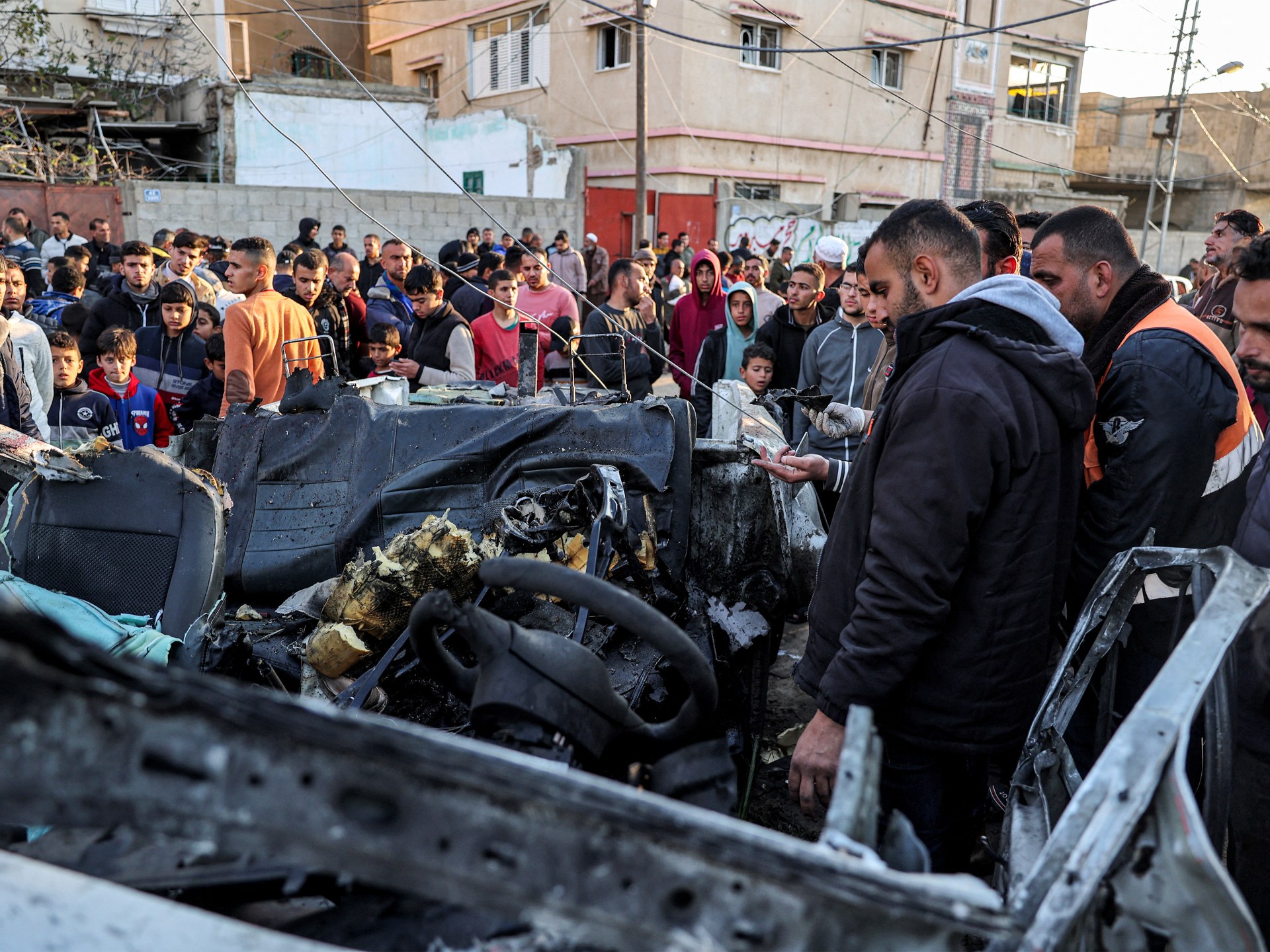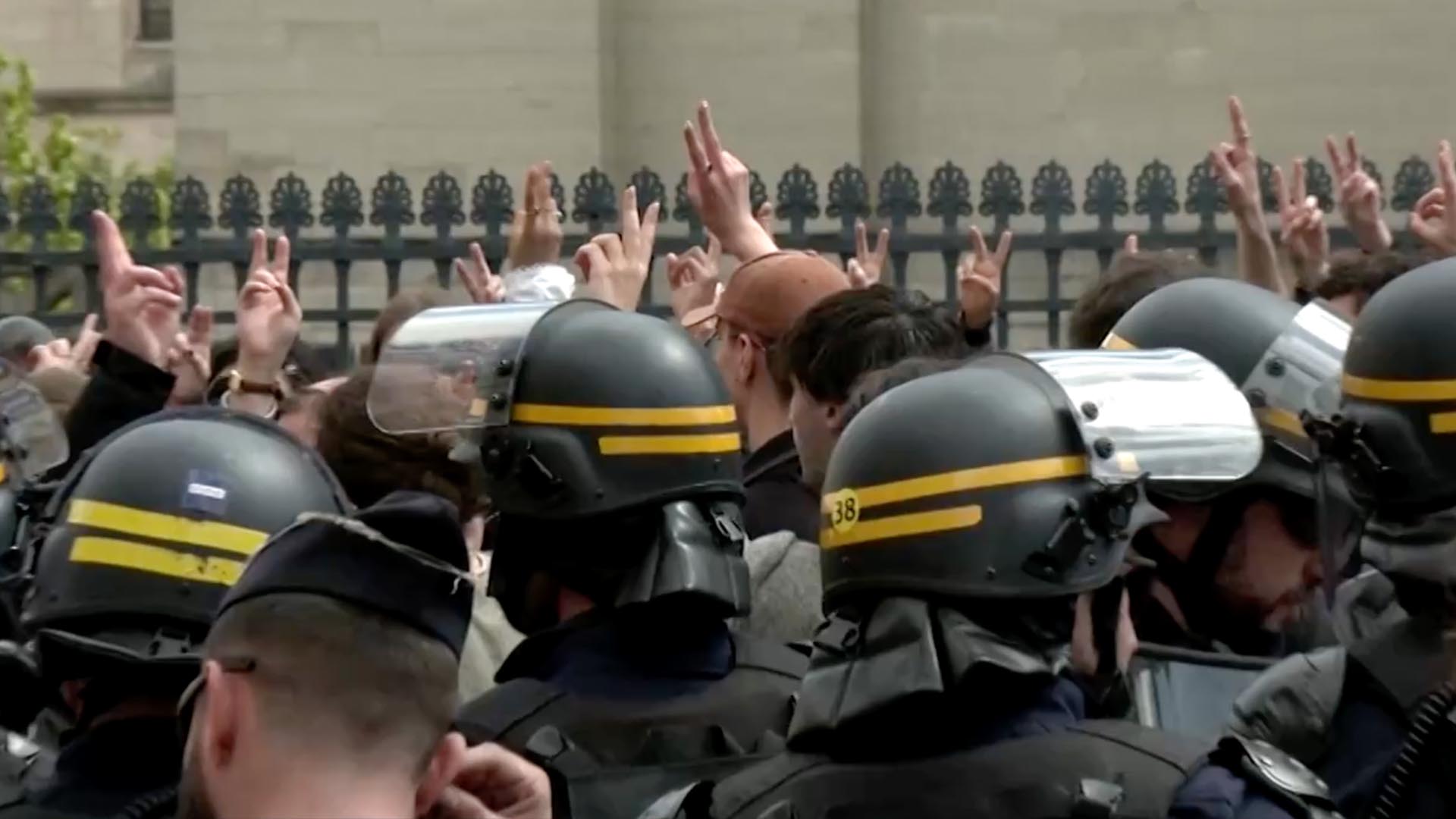Israel escalates Rafah bombardment as US warns of a ‘disaster’ | Israel War on Gaza News
Israeli forces bombed areas in the southern border city of Rafah, where more than half of Gaza’s internally displaced population is sheltering, as the United States warned that a military push into the city could be a “disaster”.
Aid agencies have warned of a humanitarian catastrophe if Israel follows through on its threat to enter Rafah, where people are desperate for shelter and one of the last remaining areas of the Gaza Strip into which its troops have not moved.
“To conduct such an operation right now with no planning and little thought in an area” where one million people are sheltering “would be a disaster,” State Department deputy spokesman Vedant Patel said on Thursday.
He said Washington had “yet to see any evidence of serious planning for such an operation”.
Earlier, UN Secretary-General Antonio Guterres warned that more than a million civilians were trapped in the city in southern Gaza.
“Half of Gaza’s population is now crammed into Rafah. They have nowhere to go,” he said.
Palestinians in Gaza are desperately hoping a ceasefire could arrive in time to head off the threatened Israeli assault on Rafah, hard against Gaza’s southern border fence and now home to more than a million people, many of them in makeshift tents.
Israeli planes bombed parts of the city on Thursday morning, residents said, killing at least 14 people in attacks on two houses. Tanks also shelled some areas in eastern Rafah, intensifying the residents’ fears of an imminent ground assault.
Diplomatic efforts
The warnings come as diplomats sought to salvage ceasefire talks after Prime Minister Benjamin Netanyahu rejected a Hamas proposal.
In a sign that the diplomacy was not over, a Hamas delegation led by senior official Khalil Al-Hayya arrived in Cairo on Thursday for ceasefire talks with key mediators Egypt and Qatar.
Netanyahu said on Wednesday terms proposed by Hamas for a ceasefire were “delusional”, and pledged to fight on, saying victory was in reach and just months away.
Despite Israel’s rejection of the Hamas proposal, more talks are planned. US Secretary of State Antony Blinken, who met mediators this week on his fifth trip to the region since the start of the war, said he still saw room for negotiations.
Blinken also said that the civilian death toll was too high and reiterated that Israel’s operation should put civilians first.
“And that’s especially true in the case of Rafah, where there are somewhere between 1.2 and 1.4 million people, many of them displaced from other parts of Gaza,” he said.
He said he had suggested some ways to minimise harm in talks with Israeli leaders, but gave no details. Blinken departed to return to the US on Thursday afternoon.
The Hamas delegation in Egypt is expected to meet officials including Egyptian intelligence chief Abbas Kamel, Egyptian security sources said.
Hamas proposed a ceasefire of four and a half months, during which all hostages would go free, Israel would withdraw its troops and an agreement would be reached on an end to the Israeli offensive. Its offer was a response to a proposal drawn up by US and Israeli spy chiefs with Qatar and Egypt, and delivered to Hamas last week.
Hamas says it will not agree to any deal that does not include an end to the offensive and Israeli withdrawal. Israel says it will not withdraw or stop fighting until Hamas is eradicated.
Israel began its large-scale military offensive after Hamas fighters killed 1,139 people and took 253 hostages in southern Israel on October 7, according to Israeli tallies.
Israel’s military said on Thursday that, during the past day, its troops had killed more than 20 fighters in Gaza’s main southern city Khan Younis, now the site of some of the war’s most intense fighting.
Gaza’s Health Ministry said at least 27,840 Palestinians have been confirmed killed, and more than 67,000 injured since the war began.
The Israeli bombardment continued in Khan Younis and Deir el-Balah in central Gaza, killing Palestinian television journalist, Nafez Abdel-Jawwad, and his son.
At least 124 journalists and media representatives have been killed in the enclave so far, Gaza’s information ministry said.
Philippe Lazzarini, head of the main UN aid agency for Palestinians, UNRWA, said on X that the agency had not been permitted to bring food to areas where people are on the verge of famine.
Check out our Latest News and Follow us at Facebook
Original Source





